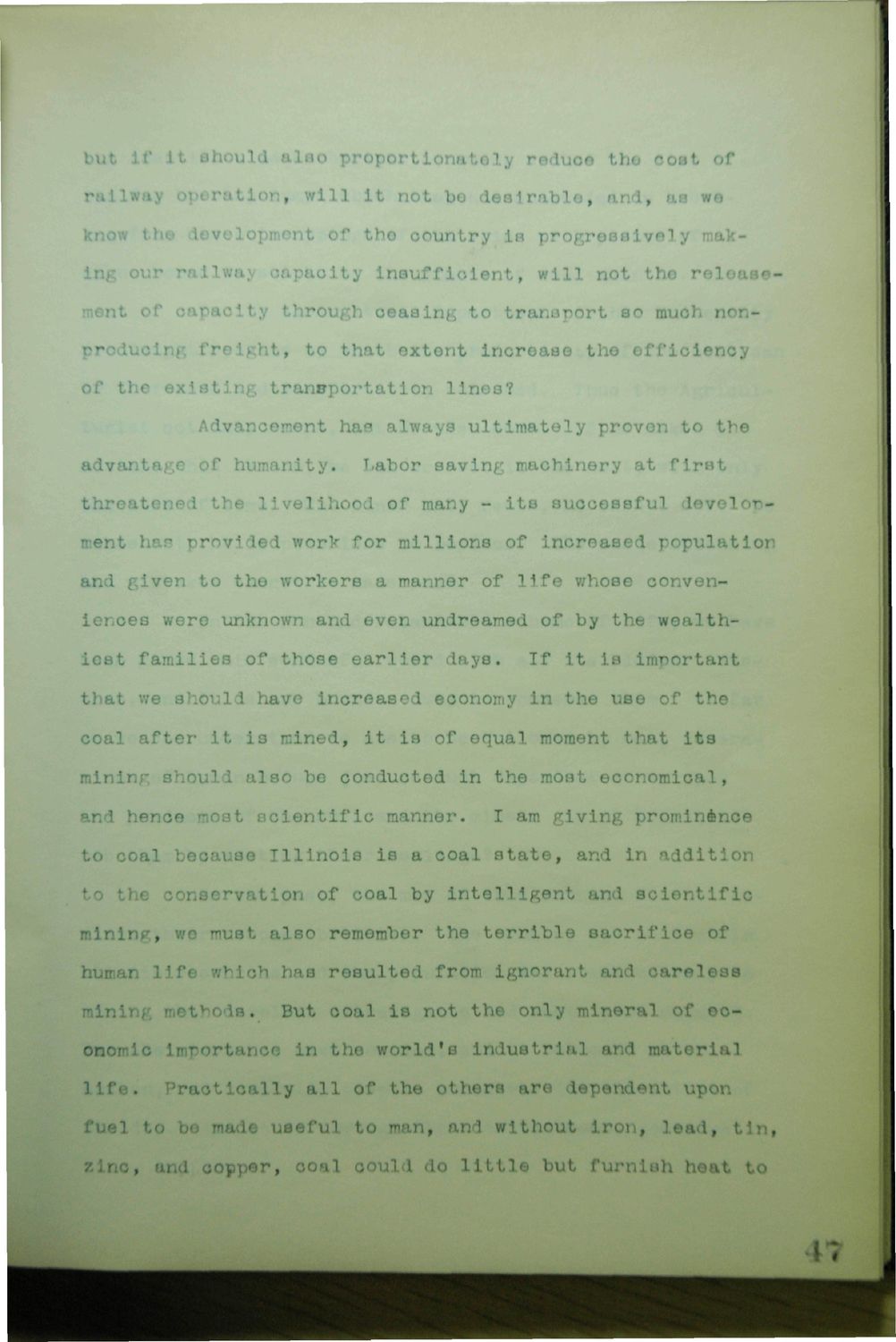Caption: Dedication - Transportation Building Dedication Addresses
This is a reduced-resolution page image for fast online browsing.

EXTRACTED TEXT FROM PAGE:
but if it should also proportionately reduce the coat of railway operation, will it not be desirable, and, us we know the development of tho country is progressively making our railway capacity ineuffioient, will not the release ment of capacity through ceasing to transport so much nonproducing freight, to that extent increase the efficiency of the existing transportation lines? Advancement has always ultimately proven to the advantage of humanity. Labor saving machinery at first threatened the livelihood of many - its successful develop* ment has provided work for millions of inoreased populatior and given to the workers a manner of life whose conveniences were unknown and even undreamed of by the wealthiest families of those earlier days. If it is important that we should have inoreased economy in the use of the coal after it is mined, it is of equal moment that its mining should also be conducted in the most economical, and hence most scientific manner. I am giving prominence to coal because Illinois is a coal state, and in addition to the conservation of coal by intelligent and scientific mining, we must also remember the terrible sacrifice of human life which has resulted from ignorant and careless mining methods. But coal is not the only mineral of economic importance in the world's industrial and material life. Practically all of the others are dependent upon fuel to be made useful to man, and without iron, lead, tin zinc, and copper, coal could do little but furnish heat to
|